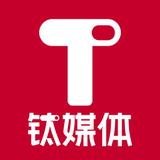BEIJING, December 28 (TMTPost)—Alibaba Group and JD.com adopted a popular after-sale policy developed by PDD Holdings Inc, underlining the e-commerce rivalry between Chinese leading players are heating up.
Credit:Visual China
Taobao, the Chinese online shopping platform under Alibaba, announced a host of new rules that went on effective on Tuesday. Under the new rules, Taobao will decide whether to applying the "quick refund" or the "returning the product for the refund" policy in response to consumers’ requests for after-sales services, based on the platform's big data capabilities combining with the multidimensional recognition. Taobao will allow the buyer to request a refund automatically if the seller exceeds the agreed-upon delivery time or sends goods without the buyer’s consent. A refund request is allowed when the buyer refuse to sign for a delivery on arrival if Taobao confirms the purchase meets its conditions of return ,or the request is made within 7 days of purchase. Taobao set high threshold for adoption of the “refund only” policy. It will make comprehensive evaluation based various indicators such as ratings of the seller, product quality, number of complaints to determine products have corresponding issues before it offer refund-only service.
A day after Taobao’s announcement, JD.com released on Wednesday an updated dispute management guideline to add the “refund only” policy, effective on Friday. JD will adopt the policy under various cases, such as the buyer and the seller’s failure to tell which side is accountable, seriously poor quality of the goods delivered , delivery of wrong goods. The platform has the right to determine whether to apply for the "refund only" or "returning and refund" policy based on its multidimensional evaluation for merchants during after-sales services as well as transaction disputes. The updated guideline is just an extension of application for the “refund only” policy since it has already been applicable for JD’s self-operated business since 2014, insiders at the company said. They suggests the latest adjustment mainly affect third party merchants on JD platform.
The “refund only” policy, initiated by PDD, is designed to improve shopping experience and reinforce protection for consumers while it also increases cost and risks of merchants. Taobao and JD’s move is the latest response to competitive heat.
PDD has turned up the heat on its predecessors these years. Founded in 2015, Temu initially took a foot hold in China with heavy discounting and is well-known for Chinese online discount retailer Pinduoduo. The company has attracted international attention for Temu, an affordable cross-border online platform that first launched in U.S. on September 1, 2022.Temu is available in 48 countries around the world. Tts app was downloaded 200 million times in the past year, and it attracted 120 million worldwide viewers in September alone, half of which came from markets outside the United States, according to Chinese digital news media outlet LatePost.
Recent financial results highlighted PDD sales growth outrun major domestic rivals in the quarter ended September 30. PDD posted revenue of RMB68.84 billion (US$9.43 billion) that quarter, exceeding by about 25% more than the average analysts’ estimate. The sales surged 94% from a year earlier, accelerating from the previous quarter’s 66% year-over-year (YoY) increase, and refreshed the record set in the second quarter, increasing around 32% sequentially. JD’s revenue increased 1.7% YoY, better than the analysts’ estimated RMB246.59 billion. But revenue still slowed down from the second quarter with a 7.6% YoY increase.
PDD’s stellar growth pushed its shares this year, soaring more than 70% to the date The Nasdaq-listed shares of PDD settled 18% higher on November 28 after the company posted much stronger-than-expected sales and earnings. The following day saw PDD market capitalization once surged to US$196.9 billion, eclipsing Alibaba’s US$190.5 billion as shares climbed more than 4% before paring some of gains. It’s the first time for PDD to surpass Alibaba though its market cap was surpassed by the older rival as of close.
特别声明:以上内容(如有图片或视频亦包括在内)为自媒体平台“网易号”用户上传并发布,本平台仅提供信息存储服务。
Notice: The content above (including the pictures and videos if any) is uploaded and posted by a user of NetEase Hao, which is a social media platform and only provides information storage services.

 北京
北京


























































